Abstract
The distinction between subjective and objective domains is central to traditional psychology, including the various forms of mediational stimulus—organism—response neobehaviorism that treat the elements of a subjective domain as hypothetical constructs. Radical behaviorism has its own unique perspective on the subjective—objective distinction. For radical behaviorism, dichotomies between subjective and objective, knower and known, or observer and agent imply at most unique access to a part of the world, rather than dichotomous ontologies. This perspective leads to unique treatments of such important philosophical matters as (a) dispositions and (b) the difference between first- and third-person psychological sentences.
Keywords: radical behaviorism, subjective, objective, dispositions, first- and third-person sentences, private events
Full text
PDF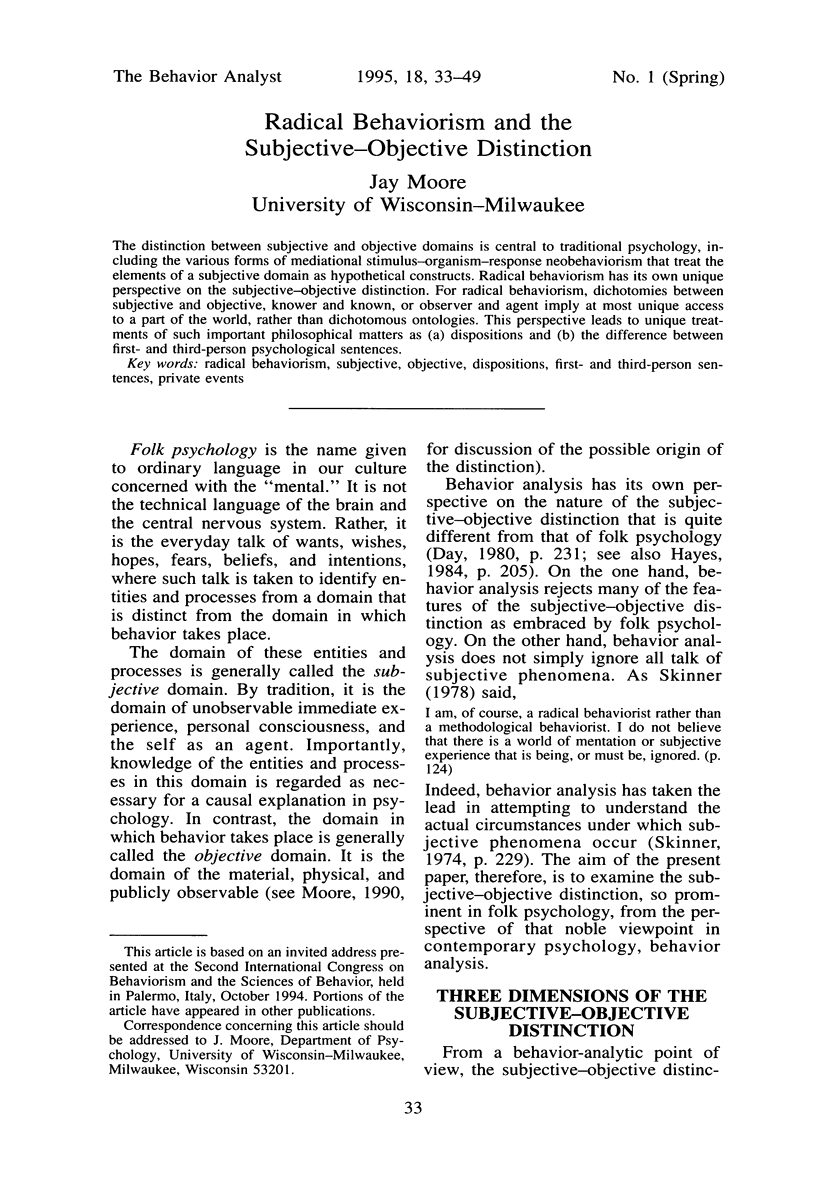
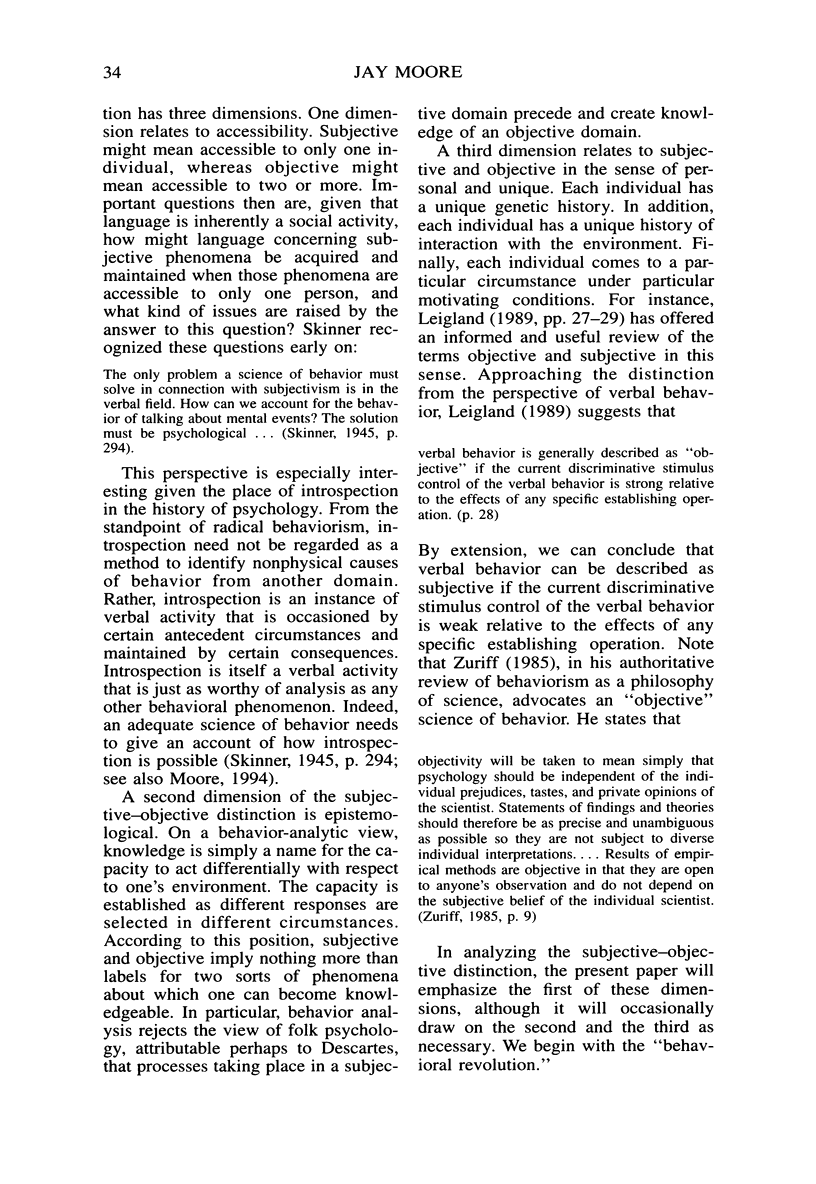
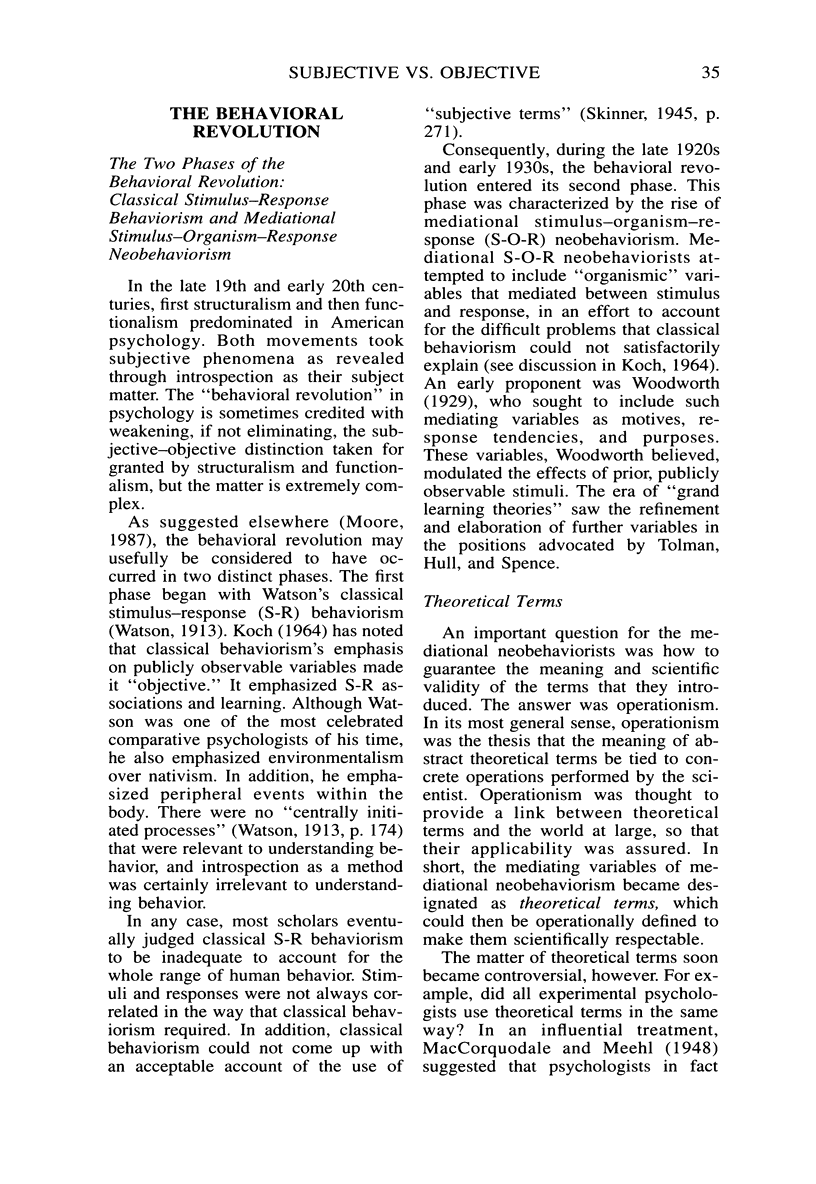
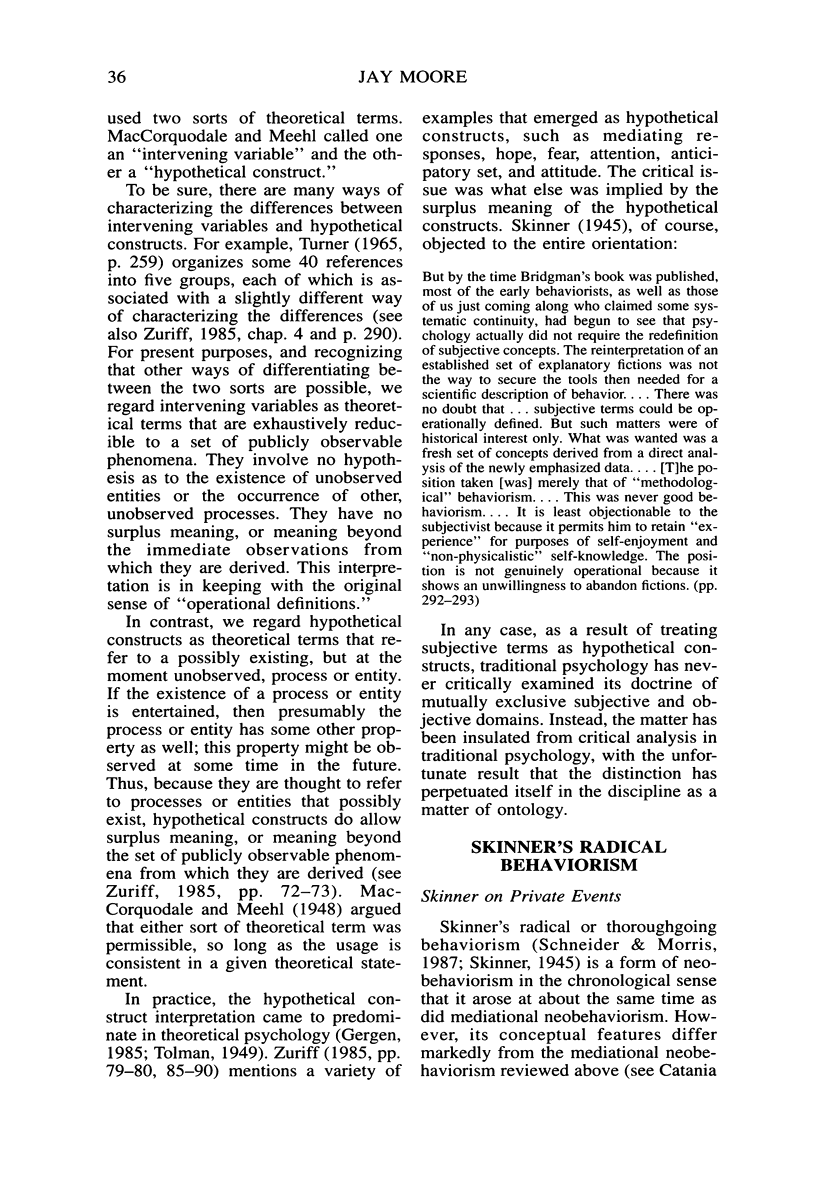
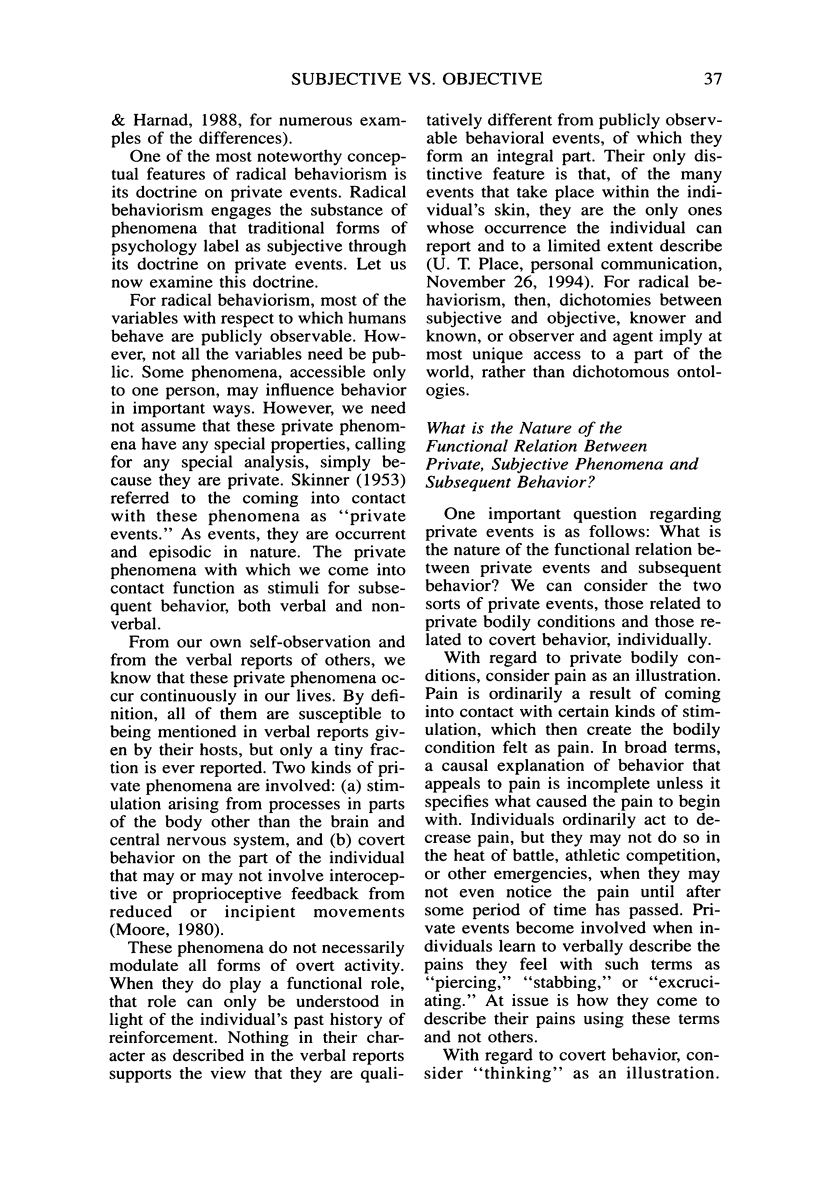
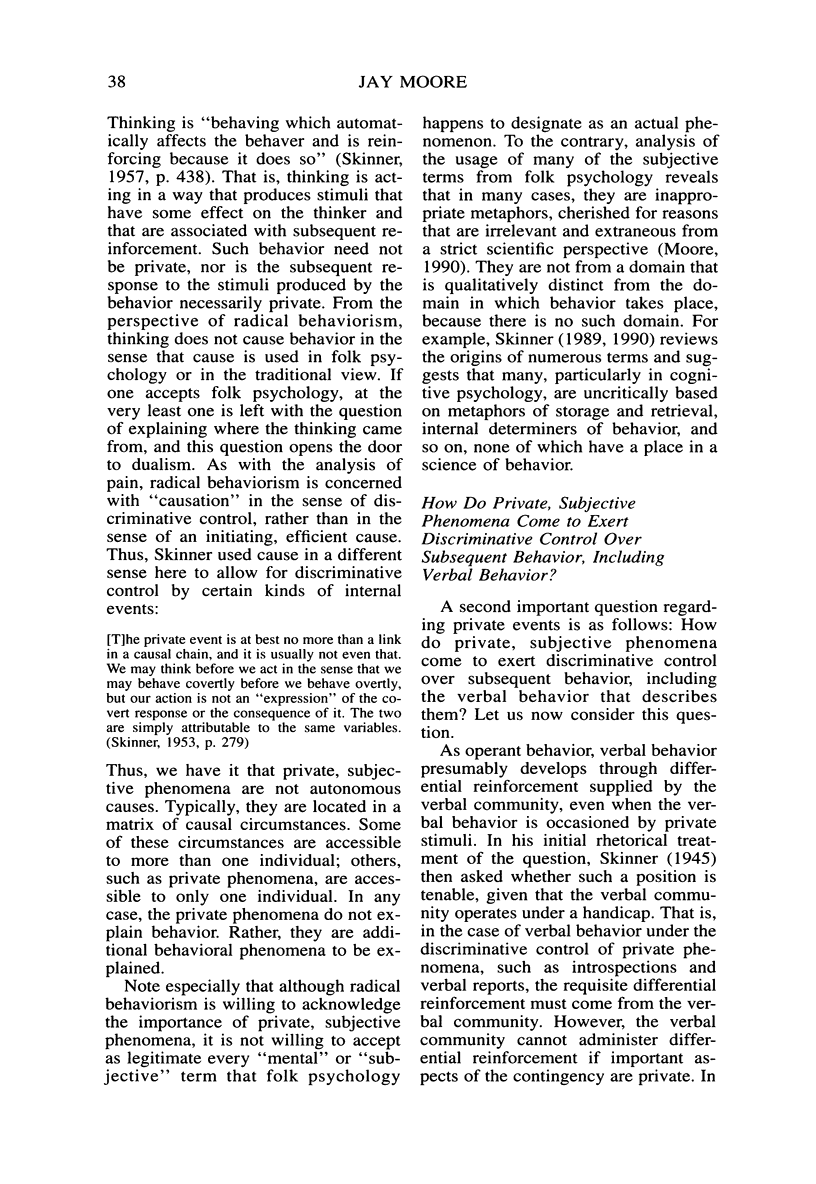
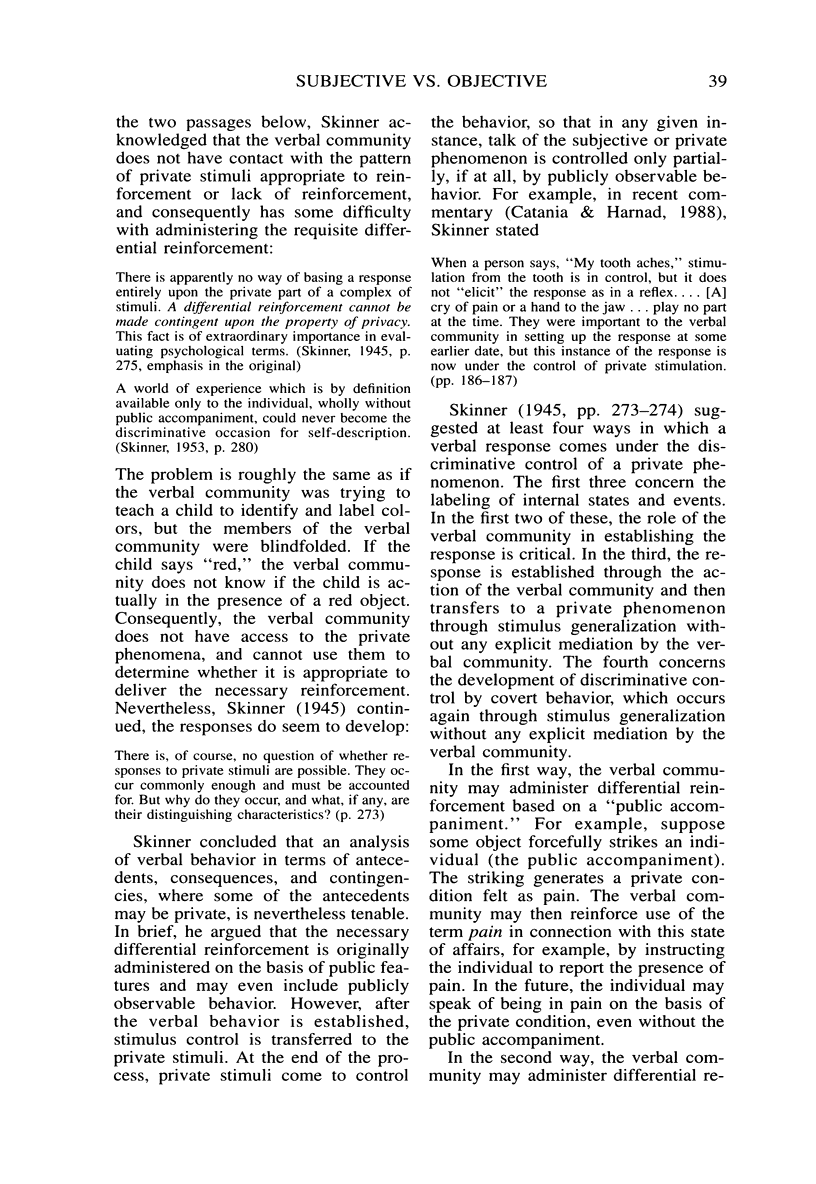
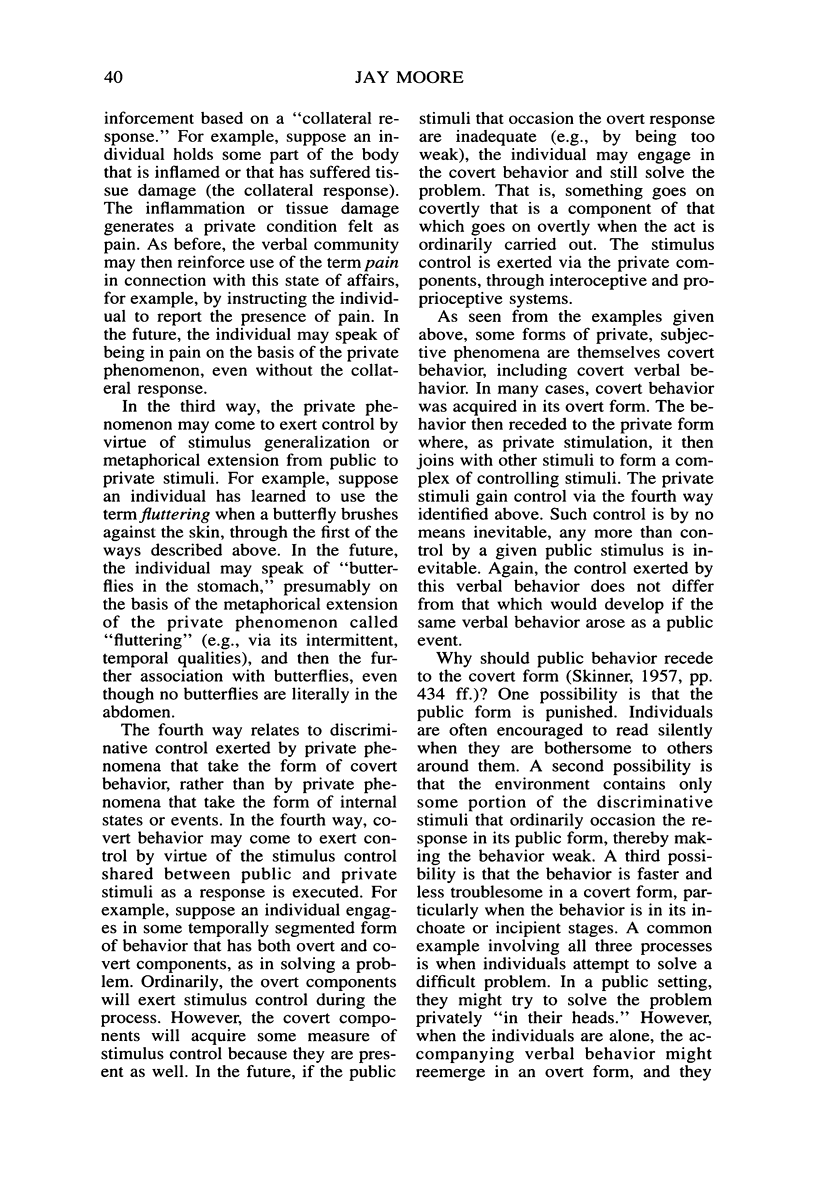
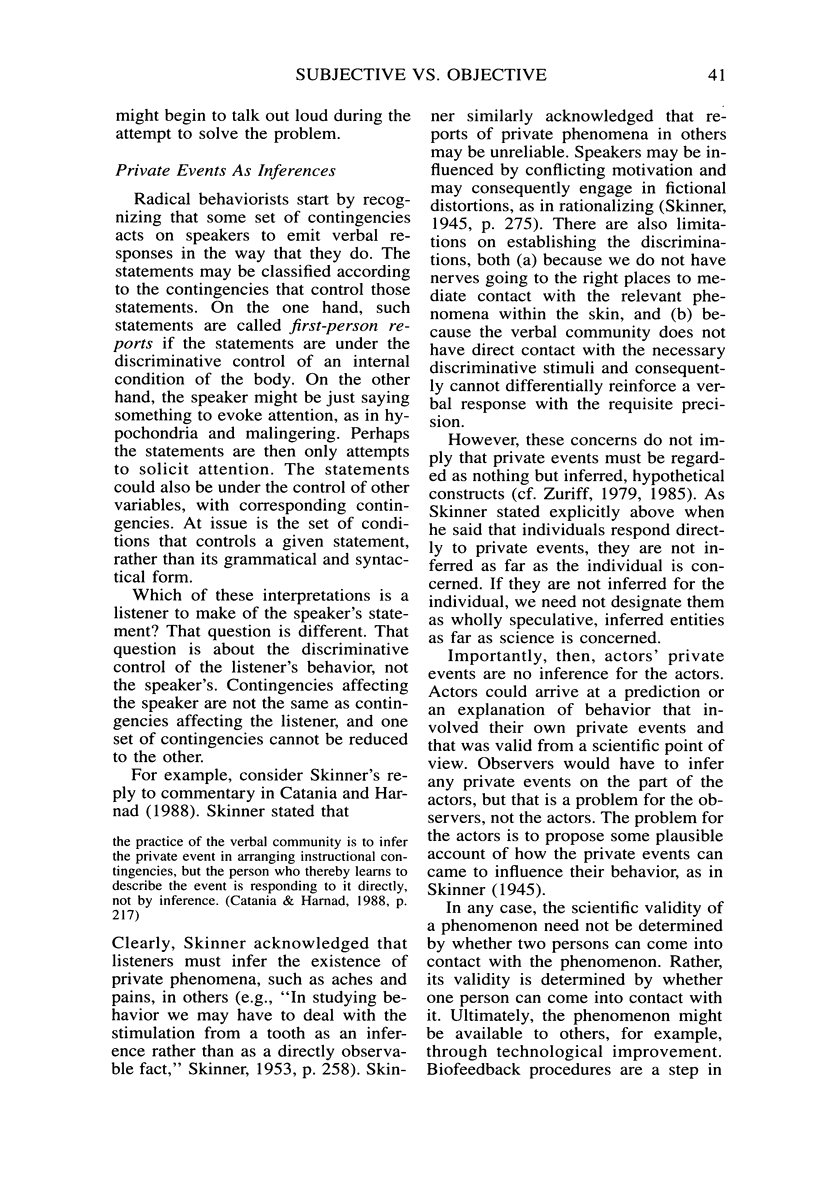
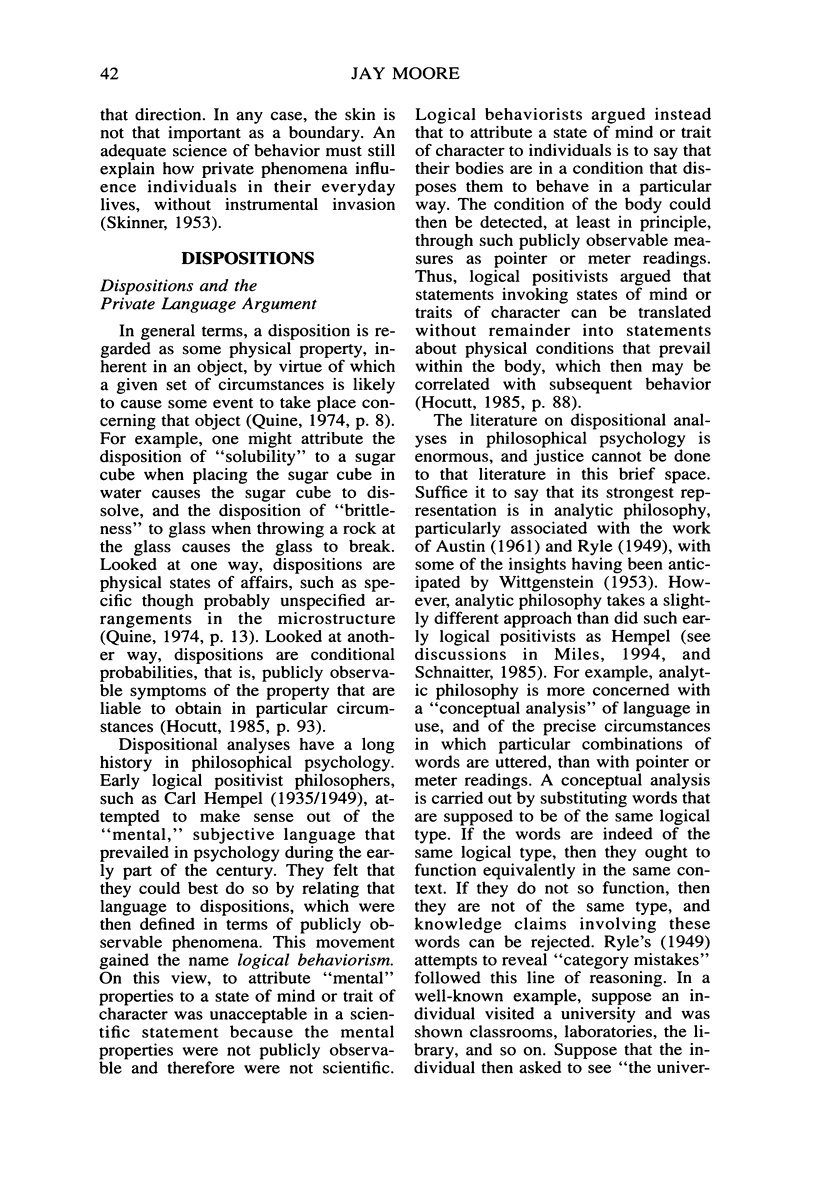
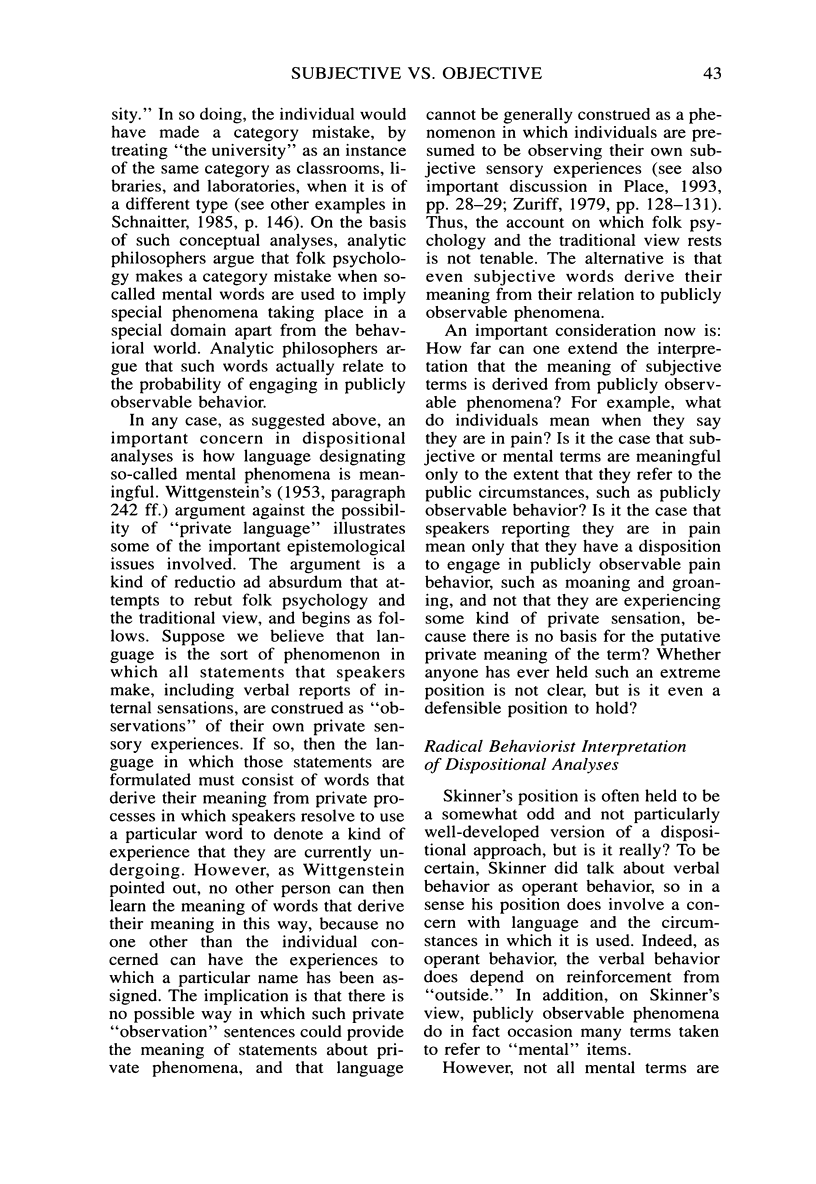
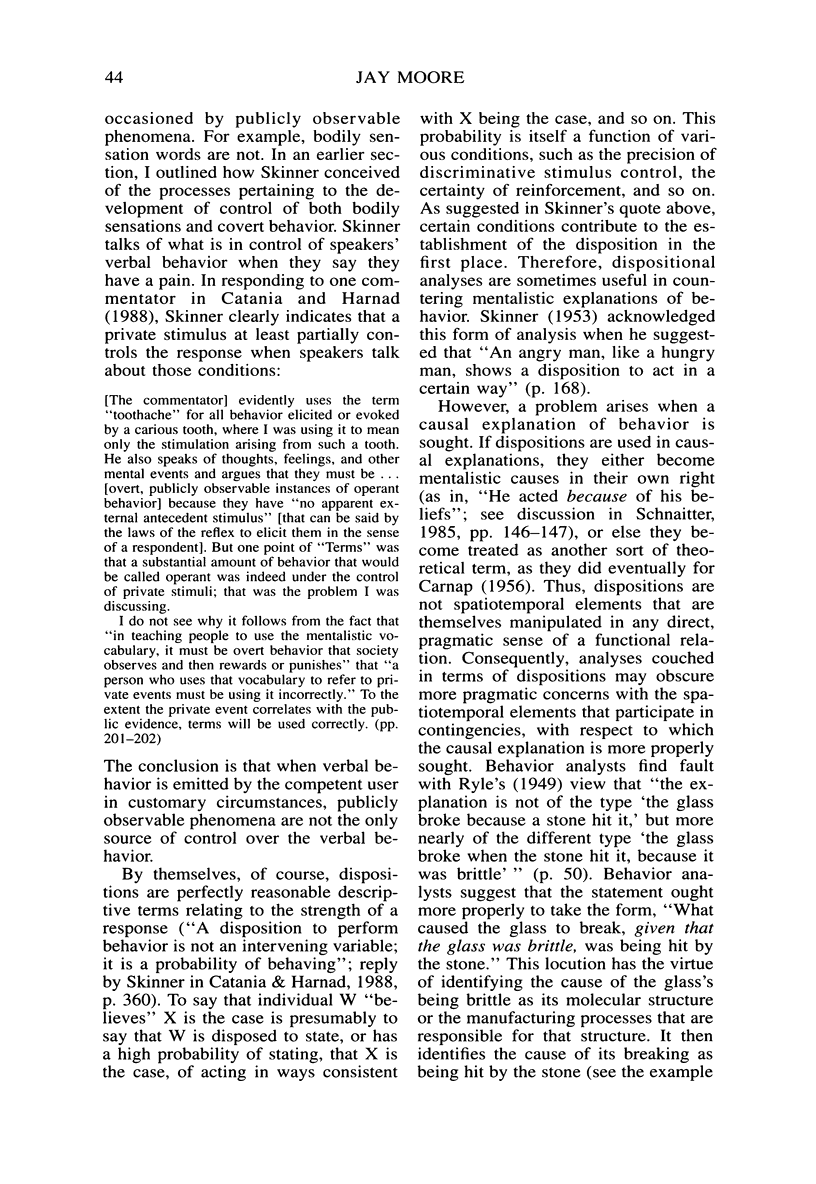
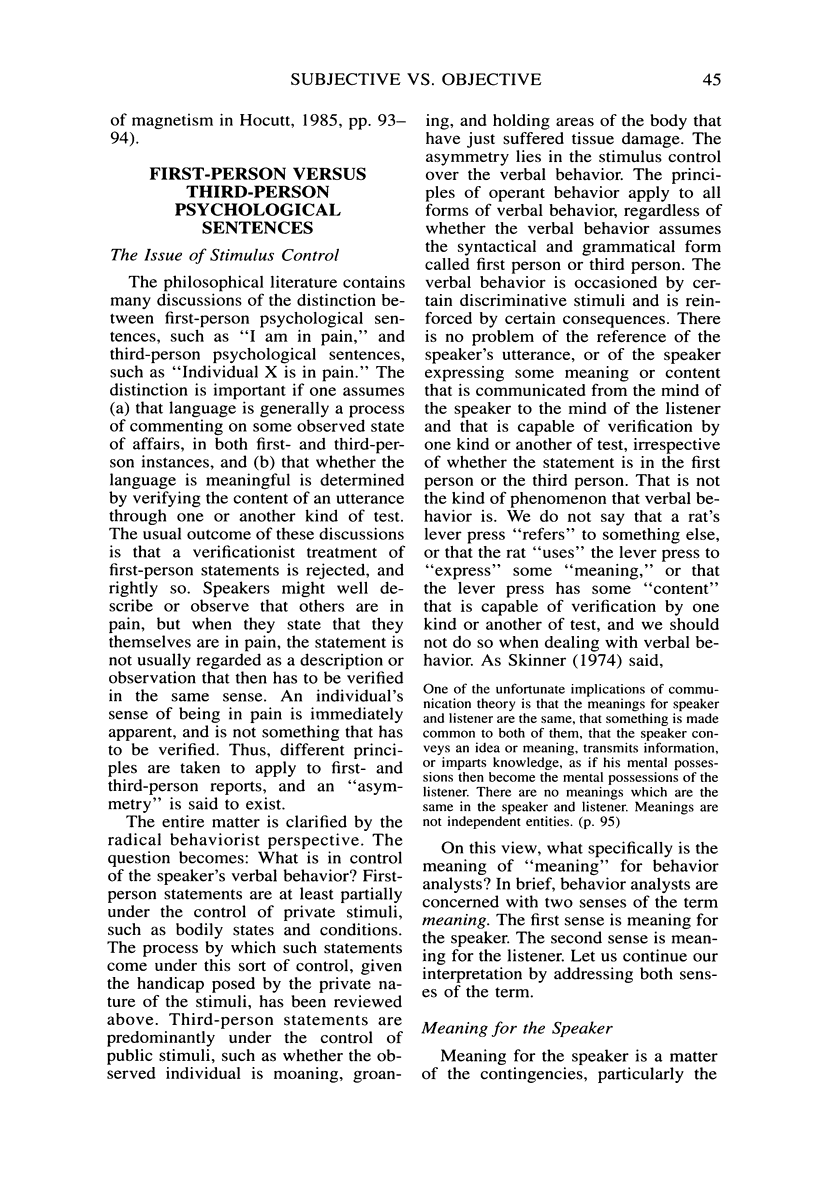
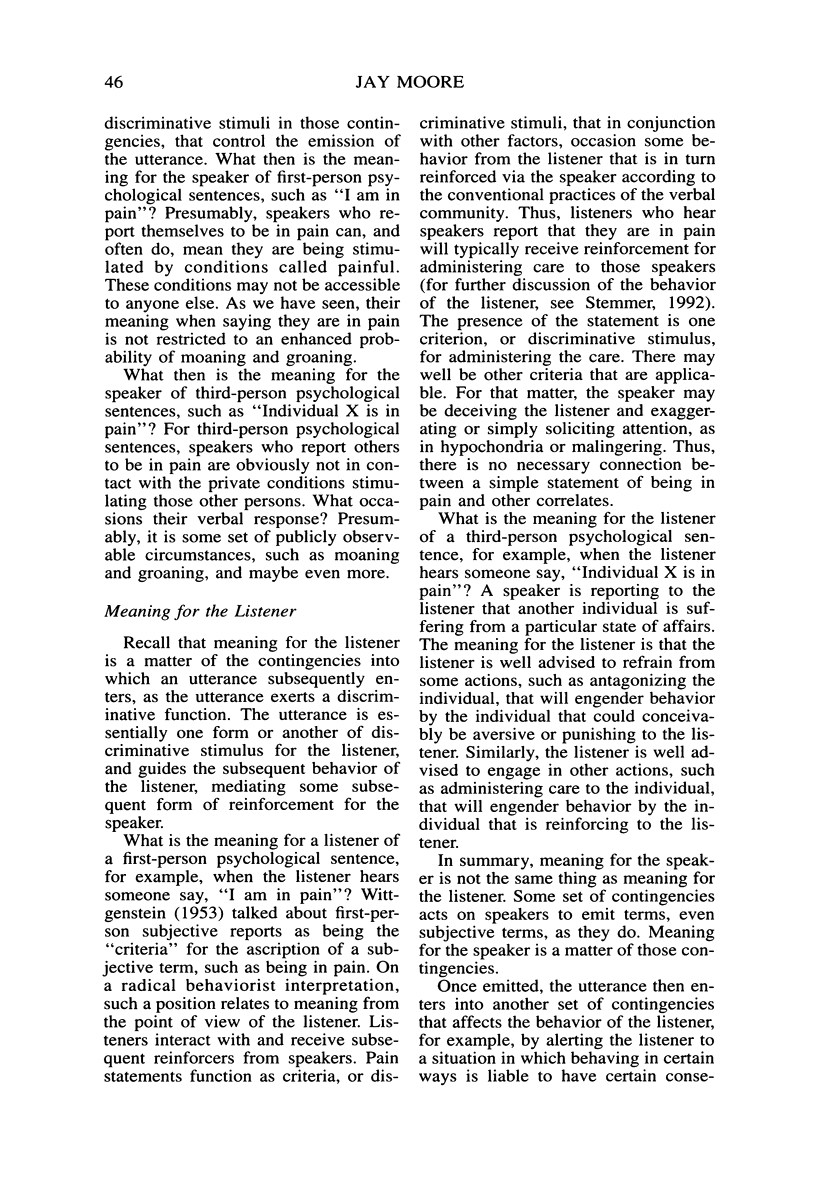
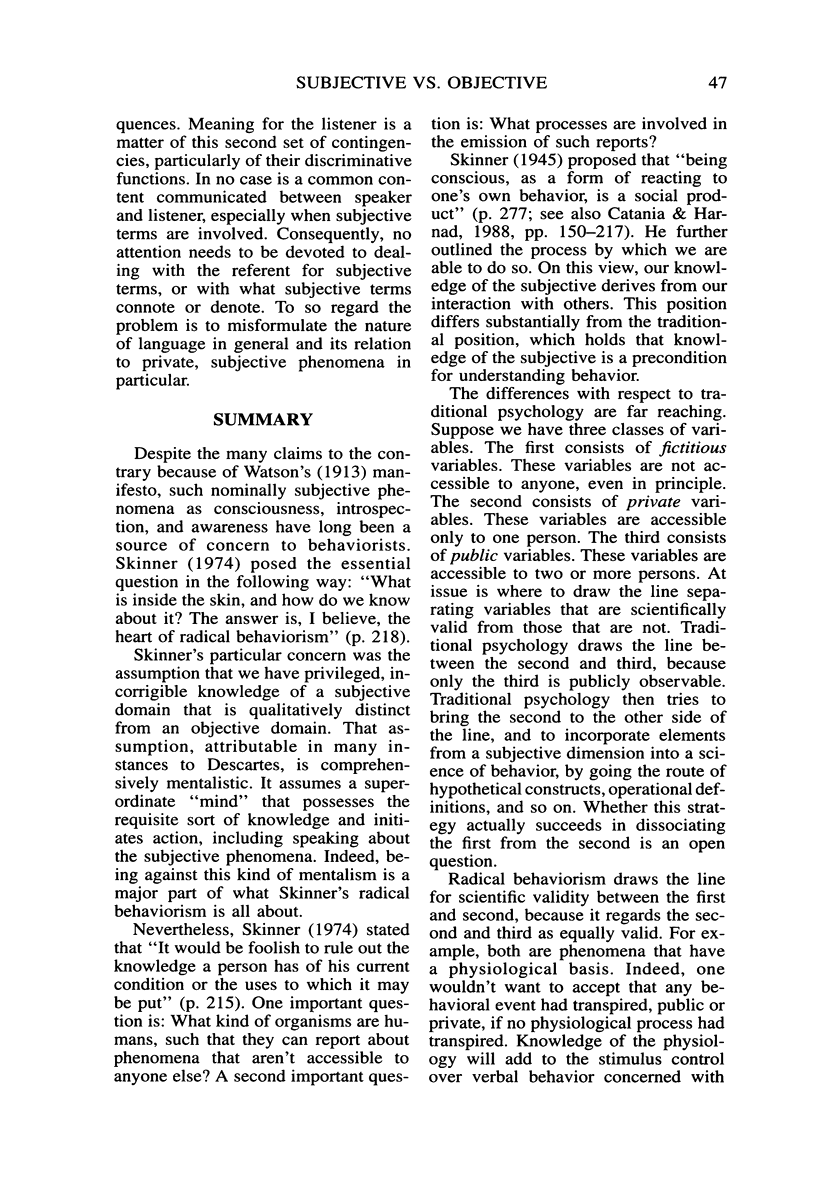
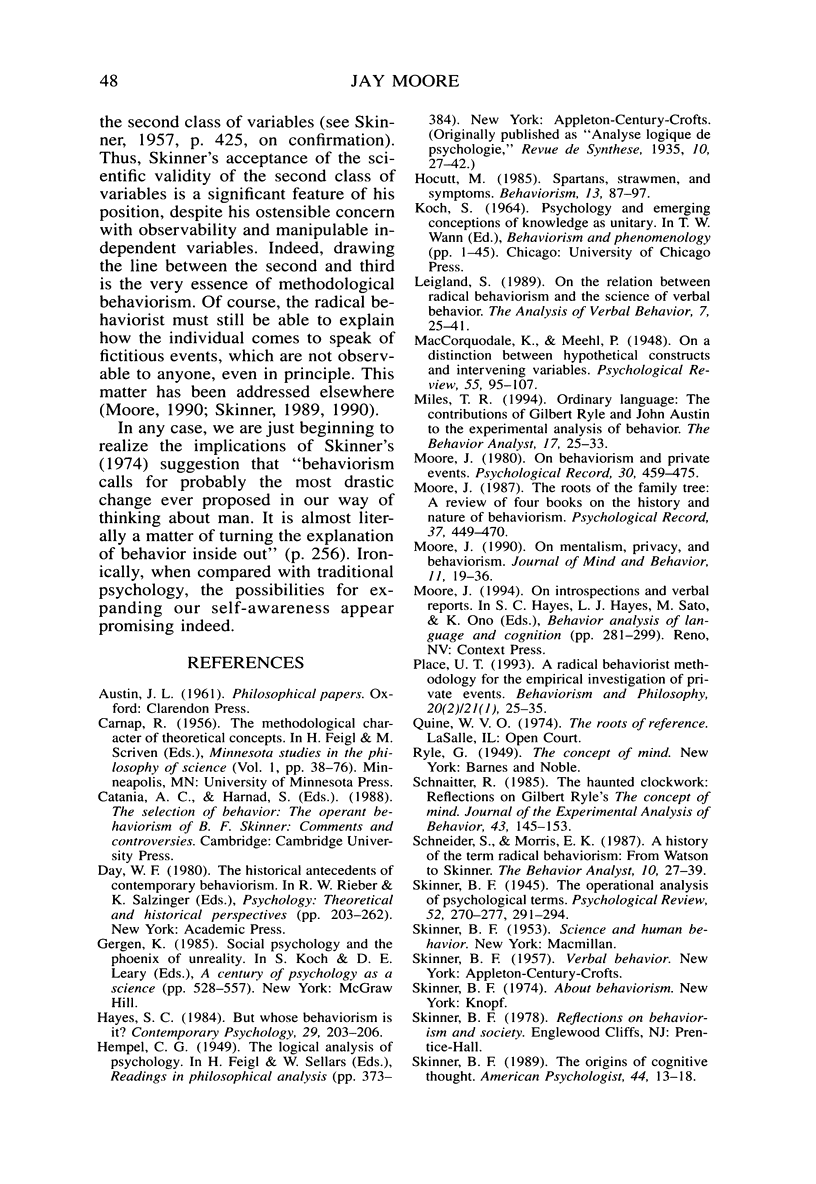
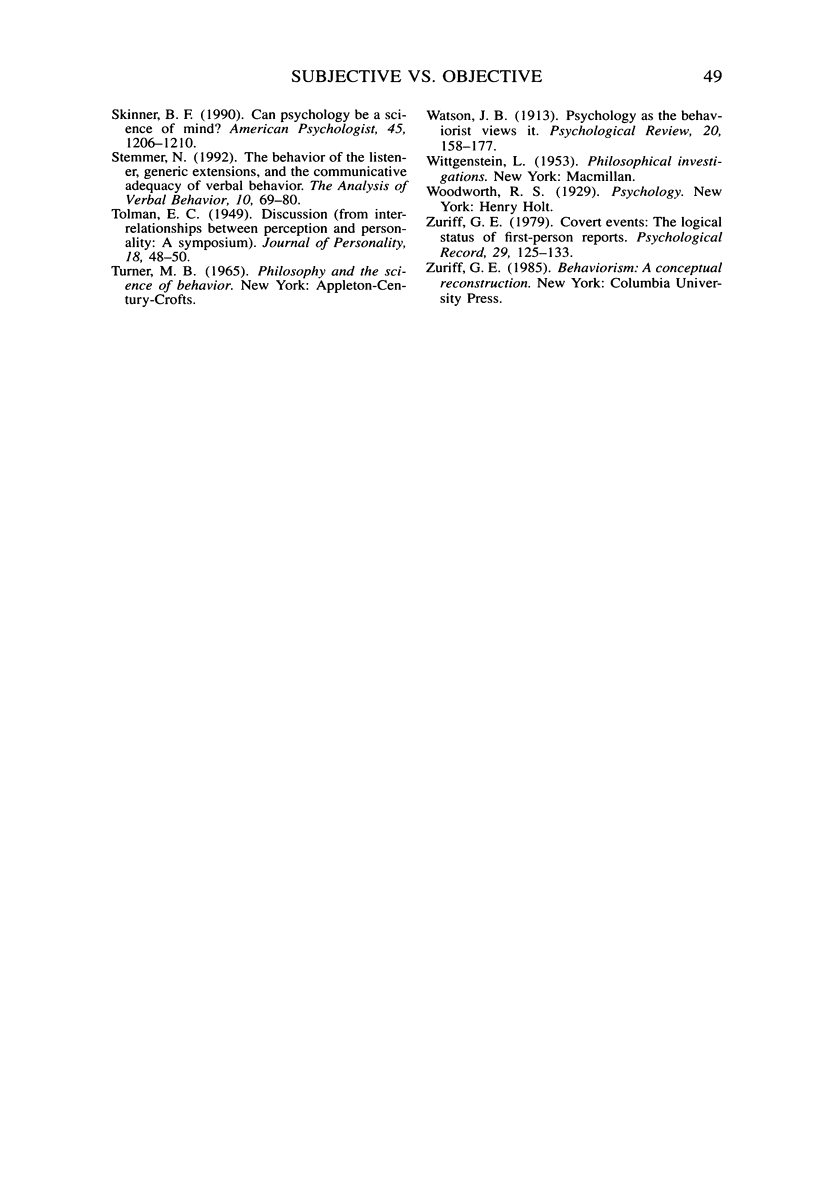
Selected References
These references are in PubMed. This may not be the complete list of references from this article.
- MACCORQUODALE K., MEEHL P. E. On a distinction between hypothetical constructs and intervening variables. Psychol Rev. 1948 Mar;55(2):95–107. doi: 10.1037/h0056029. [DOI] [PubMed] [Google Scholar]
- Miles T. R. Ordinary language: The contributions of Gilbert Ryle and John Austin to the experimental analysis of behavior. Behav Anal. 1994 Spring;17(1):25–33. doi: 10.1007/BF03392650. [DOI] [PMC free article] [PubMed] [Google Scholar]
- doi: 10.1901/jeab.1985.43-145. [DOI] [PMC free article] [Google Scholar]
- Schneider S. M., Morris E. K. A history of the term radical behaviorism: From Watson to Skinner. Behav Anal. 1987 Spring;10(1):27–39. doi: 10.1007/BF03392404. [DOI] [PMC free article] [PubMed] [Google Scholar]


